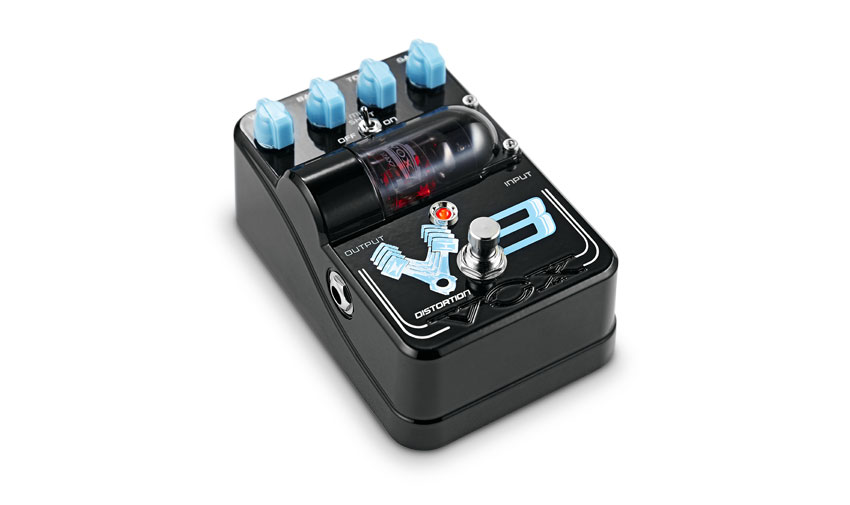MusicRadar Verdict
Distortion pedal with a wide range of gain and tonal variations.
Pros
- +
Great for rock lead-work. Harmonic-rich tones. Build.
Cons
- -
Standby switch might cause problems live.
MusicRadar's got your back
Certainly setting itself apart from the rest of Vox's (normally day-glo) Tone Garage range, the V8 distortion features baby blue knobs against a solidly-built black chassis and a standard array of volume, bass, tone and gain knobs, but also has a selectable mid shift that lets you change the dominant midrange frequency band.
As with all of the pedals in the range, there's a standby/on switch as you might find on a valve amp. While the thinking behind it is admirable and should extend valve life, it's yet another thing to check when setting up for a gig. When in standby, you won't get silence because the pedals have true bypass, but you won't get the effect, either.
"The V8 can deliver full-on high-gain distortion when cranked up, but it's also capable of a useful overdriven amp sound"
The V8 can deliver full-on high-gain distortion when cranked up, it's also capable of a useful overdriven amp sound with the gain knob at its lowest setting. In all the Tone Garage pedals, the gain knob is designed to bring in a subtle degree of frequency adjustment, but most variation comes from the tone knob.
It's more extreme here than on sister pedal/overdrive the Straight 6, meaning it can ramp up the upper mids and highs for metal sounds. With the mid shift set to off, there's a broad midrange; set to on, there's a subtle shift to a more cutting tone that Vox says is better suited to lead playing.
It's a practical source of harmonic-rich distortion that will work for plenty of styles of music, but especially rock.
Trevor Curwen has played guitar for several decades – he's also mimed it on the UK's Top of the Pops. Much of his working life, though, has been spent behind the mixing desk, during which time he has built up a solid collection of the guitars, amps and pedals needed to cover just about any studio session. He writes pedal reviews for Guitarist and has contributed to Total Guitar, MusicRadar and Future Music among others.

